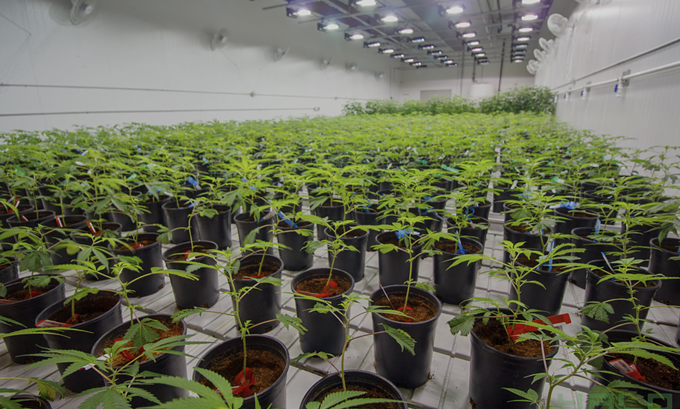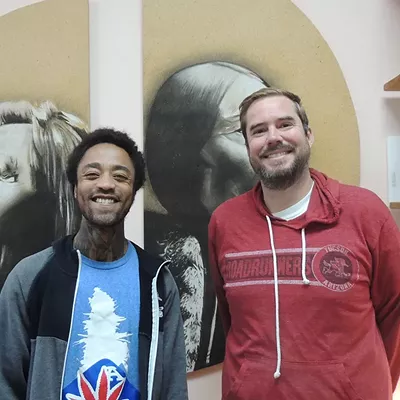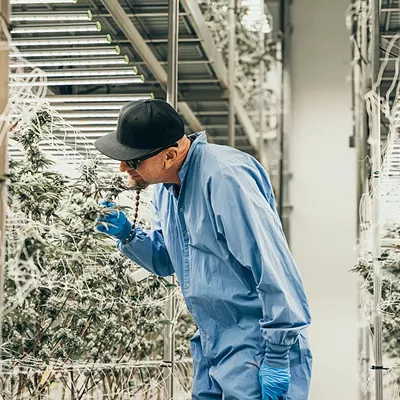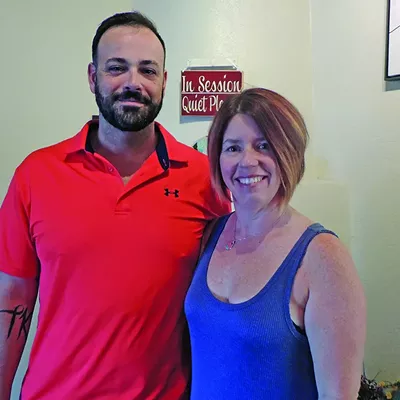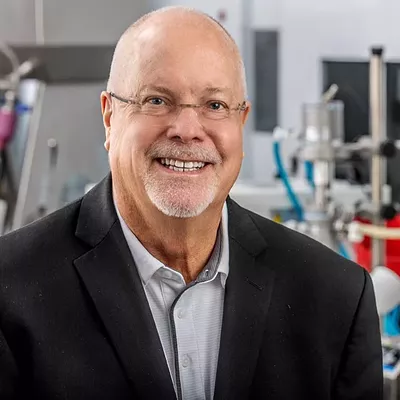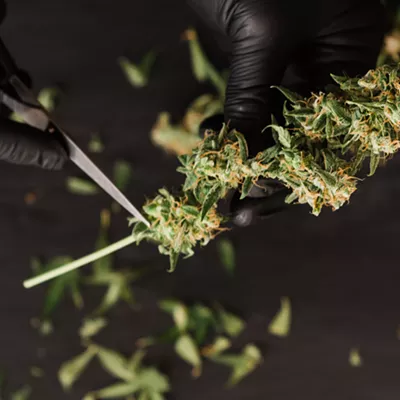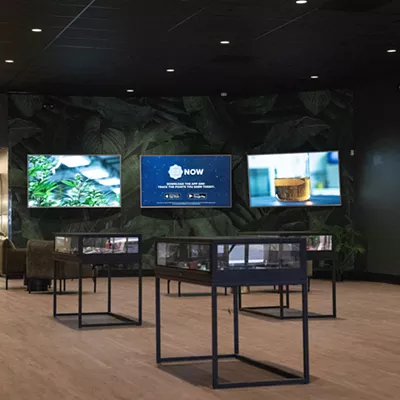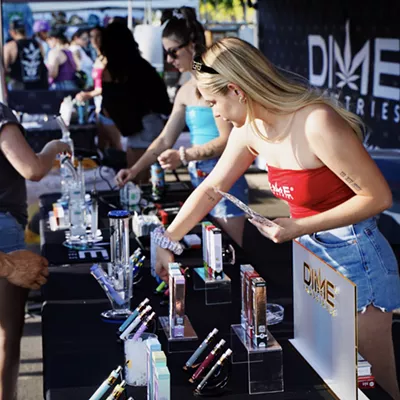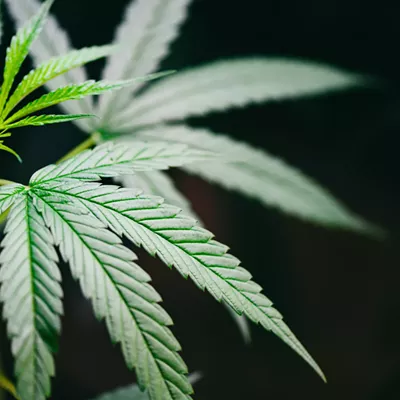Halo Cannabis has everything needed to produce cannabis and cannabis goodies. The 40,000-square-foot building boasts 10 flowering rooms, three bedrooms and one nursery.
At Halo Cannabis, quality is the priority. Cultivated by its tenured agriculture engineers, the Halo Cannabis facility produces only the finest of medicines for Arizona residents, according to staff.
“We are very different,” Halo Cannabis owner George Roop said. “We are not a public company. We are a family-owned and -operated company. We have no investors. We have no debt.”
He said his company looks at its team members as the investors. “That’s what gets me and my wife (Chrissy) excited, to change people’s lives, our team’s lives,” Roop said. “Our goal is to create millionaires within our company.”
Sole owner
As the sole owner, Roop said Halo Cannabis has a “very different dynamic” than other dispensaries that often have multiple owners.
“Our family, we bootstrapped this operation,” Roop said. “We didn’t take any money from anybody. And with our cultivation, within a very short two and a half years we were able to take down our own license when we acquired the Halo as well.”
Last September, Roop acquired what was the Green Halo dispensary. He said the Halo Infusions business operates under the Halo license as well.
“We were able to achieve that,” he said. “And buying a license, we took that license down for $30 million. It was the largest acquisition that’s ever happened in the state of Arizona for a license. That was an investment in our team.”
Purpose-built facility
Halo Cannabis has been in the same place for more than three years. It’s a purpose-built facility.
“It’s not a building we just did a TI (tenant improvement) on,” he said. “When we built this facility, we kept product flow in mind; it’s a very high-tech facility.”
They thought about the environment, as well, and decreasing their carbon footprint.
“We recycle 100% of our water,” Roop said. “It’s really an important thing moving into the future. Not that it’s a large bill for us, but just understanding our carbon footprint.”
Added Dominique Gamboa, Halo Cannabis’ communications and marketing director, “That (the facility) includes cultivation, our lab, our pre-packing and our trim room. Our whole building is filled … top to bottom, from seeds to production to pushing everything out.”
Halo Cannabis makes its own concentrates from its flowers. The staff knows what it’s doing, Gamboa said.
“We are constantly hunting genetics, and right now we are in the process of hunting even more,” Gamboa said when asked about new flower strains. “We have probably 30 strains in production full time and maybe another 20 on the way. We are always updating our menu, because that’s what we’re all about. We like hunting genetics and finding what’s best. Our big thing is on quality and taste. That’s primarily what we look for.”
Gamboa added that the lab is working on making live resin cartridges and live hash rosin cartridges.
“So, we’re dialing in that kind of science behind that right now,” Gamboa said. “And we run our flower into concentrate. Everything we produce out of our building comes from our cultivation. So, we don’t outsource any product. It’s all us.”
The difference between live and hash rosin is the process in which it is extracted. Live resin goes through a solvent extraction, and hash rosin is a water and ice extraction, Gamboa explained.
Concentrates come in a variety of forms. Budder is a wax-like concentrate that is softer and oilier. Crumble is a brittle version of it.
Meanwhile, shatter is a common cannabis extract at most local dispensaries. Sugar wax is made similarly to shatter, through butane extraction. Crystallines are the purest forms of cannabis available from any marijuana dispensary. THC oil is a common name for all types of cannabis oil concentrates that are rich in THC.
On its website, Halo Cannabis has a “testing” section, but it is still under construction. Soon, shoppers will see the test results of Halo Cannabis’ plants.
“So, if someone wants information on the strain and the concentrate, they can pull up the test results of the plant,” Gamboa said.
“Typically, you can get that information from the dispensaries. Sometimes they upload that information as well, because it is all connected to the state.”
The testing is for the quality assurance of the plants.
“They check it for microbials and heavy metals, this, that and the other, to make sure there’s no fungus,” Gamboa said. “That way consumers know they are not ingesting something that’s potentially contaminated.”
All testing must be done through a third-party agency, per law, he explained. The Halo Cannabis lab is used only for making its concentrates.
The Halo Cannabis cultivation facility is not open to the public, and the products cannot be sold or purchased directly from the grow facility. However, they distribute their products to licensed dispensaries only, such as the Halo Cannabis dispensary, also known as the Green Halo dispensary, where the products can be purchased.
Halo Cannabis aka Green Halo Dispensary
7710 S. Wilmot Road, Tucson
520-664-2251 , thegreenhalo.com
9 a.m. to 9 p.m. seven days a week

